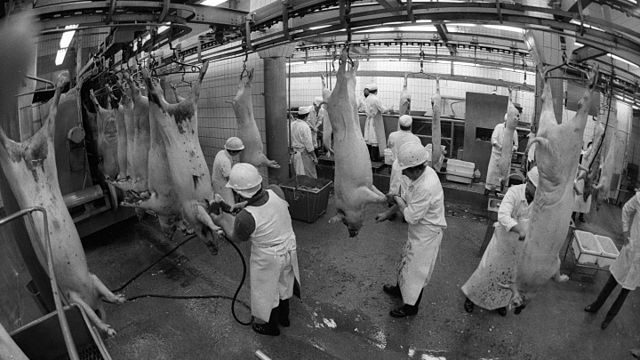How ‘dirty jobs’ impact poor and disadvantaged people
Eyal Press, who is the author of a new book, argues that moral inequality can come along with economic inequality.

Work inside a slaughterhouse, courtesy of Wiki Commons
Some of the worst tasks in this world are the things that we don’t see. Slaughterhouses, jails and prisons, military killing operations — so many of these jobs are difficult, both emotionally and physically.
These tasks are conducted behind closed barriers. In fact, we often make it illegal for others to see these things happening at all.
So why do we have these types of jobs in America and around the world? Are they necessary for us to live easier, more convenient lives? A new book explores this and more.
“The basic point of the book, is that these are not jobs that are distributed to society’s elites.” — Eyal Press, author and journalist.
Listen: How “dirty work” disproportionately impacts the poor and disadvantaged.
Guest
Eyal Press is the author of “Dirty Work: Essential Jobs and the Hidden Toll of Inequality in America.” He is a writer and journalist who contributes to The New Yorker, The New York Times and other publications.
Press says the people who most often occupy “dirty work” jobs are those who don’t have opportunities to do other things.
“The basic point of the book, is that these are not jobs that are distributed to society’s elites,” says Press. “You don’t have graduates from Harvard and Princeton to do these things.”
Trusted, accurate, up-to-date.
WDET strives to make our journalism accessible to everyone. As a public media institution, we maintain our journalistic integrity through independent support from readers like you. If you value WDET as your source of news, music and conversation, please make a gift today.
